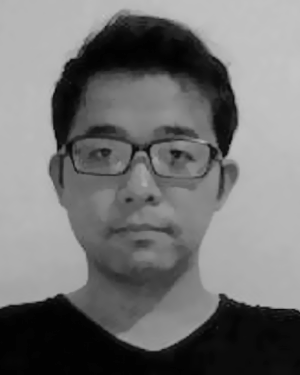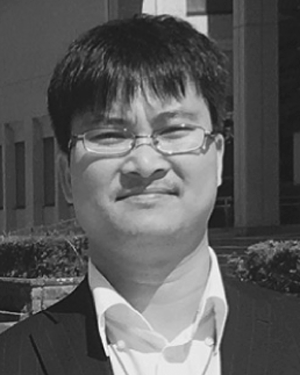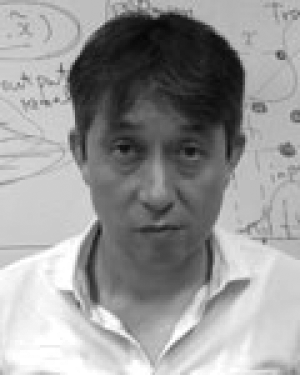Abstract:
With the wide spread large-scale e-learning environments such as MOOCs, peer assessment has been popularly used to measure the learner ability. When the number of learner...Show MoreMetadata
Abstract:
With the wide spread large-scale e-learning environments such as MOOCs, peer assessment has been popularly used to measure the learner ability. When the number of learners increases, peer assessment is often conducted by dividing learners into multiple groups to reduce the learner's assessment workload. However, in such cases, the peer assessment accuracy depends on the method of forming groups. To resolve that difficulty, this study proposes a group formation method to maximize peer assessment accuracy using item response theory and integer programming. Experimental results, however, have demonstrated that the method does not present sufficiently higher accuracy than a random group formation method does. Therefore, this study further proposes an external rater assignment method that assigns a few outside-group raters to each learner after groups are formed using the proposed group formation method. Through results of simulation and actual data experiments, this study demonstrates that the proposed external rater assignment can substantially improve peer assessment accuracy.
Published in: IEEE Transactions on Learning Technologies ( Volume: 13, Issue: 1, 01 Jan.-March 2020)
Funding Agency:

University of Electro-Communications, Choufu-shi, Japan
Masaki Uto received the Ph.D. degree from the University of Electro-Communications, Chofu, Japan, in 2013. He has been an Assistant Professor at the University of Electro-Communications since 2015. His research interests include e-learning, e-testing, machine learning, and data mining.
Masaki Uto received the Ph.D. degree from the University of Electro-Communications, Chofu, Japan, in 2013. He has been an Assistant Professor at the University of Electro-Communications since 2015. His research interests include e-learning, e-testing, machine learning, and data mining.View more

University of Electro-Communications, Choufu-shi, Japan
Duc-Thien Nguyen received the B.E. degree from the Hanoi University of Technology, Hanoi, Vietnam, in 2004 and the M.E. degree from the University of Electro-Communications, Chofu, Japan, in 2014, where he is currently working toward the Ph.D. degree. His research interests include e-testing, Bayesian statistics, and machine learning.
Duc-Thien Nguyen received the B.E. degree from the Hanoi University of Technology, Hanoi, Vietnam, in 2004 and the M.E. degree from the University of Electro-Communications, Chofu, Japan, in 2014, where he is currently working toward the Ph.D. degree. His research interests include e-testing, Bayesian statistics, and machine learning.View more

University of Electro-Communications, Choufu-shi, Japan
Maomi Ueno received the Ph.D. degree in computer science from the Tokyo Institute of Technology, Tokyo, Japan, in 1994. He has been a Professor at the University of Electro-Communications, Chofu, Japan, since 2013. He received the Best Paper Awards from ICTAI2008, ED-MEDIA2008, e-Learn2004, e-Learn2005, and e-Learn2007. His research interests include e-learning, e-testing, e-portfolio, machine learning, data mining, Bayes...Show More
Maomi Ueno received the Ph.D. degree in computer science from the Tokyo Institute of Technology, Tokyo, Japan, in 1994. He has been a Professor at the University of Electro-Communications, Chofu, Japan, since 2013. He received the Best Paper Awards from ICTAI2008, ED-MEDIA2008, e-Learn2004, e-Learn2005, and e-Learn2007. His research interests include e-learning, e-testing, e-portfolio, machine learning, data mining, Bayes...View more

University of Electro-Communications, Choufu-shi, Japan
Masaki Uto received the Ph.D. degree from the University of Electro-Communications, Chofu, Japan, in 2013. He has been an Assistant Professor at the University of Electro-Communications since 2015. His research interests include e-learning, e-testing, machine learning, and data mining.
Masaki Uto received the Ph.D. degree from the University of Electro-Communications, Chofu, Japan, in 2013. He has been an Assistant Professor at the University of Electro-Communications since 2015. His research interests include e-learning, e-testing, machine learning, and data mining.View more

University of Electro-Communications, Choufu-shi, Japan
Duc-Thien Nguyen received the B.E. degree from the Hanoi University of Technology, Hanoi, Vietnam, in 2004 and the M.E. degree from the University of Electro-Communications, Chofu, Japan, in 2014, where he is currently working toward the Ph.D. degree. His research interests include e-testing, Bayesian statistics, and machine learning.
Duc-Thien Nguyen received the B.E. degree from the Hanoi University of Technology, Hanoi, Vietnam, in 2004 and the M.E. degree from the University of Electro-Communications, Chofu, Japan, in 2014, where he is currently working toward the Ph.D. degree. His research interests include e-testing, Bayesian statistics, and machine learning.View more

University of Electro-Communications, Choufu-shi, Japan
Maomi Ueno received the Ph.D. degree in computer science from the Tokyo Institute of Technology, Tokyo, Japan, in 1994. He has been a Professor at the University of Electro-Communications, Chofu, Japan, since 2013. He received the Best Paper Awards from ICTAI2008, ED-MEDIA2008, e-Learn2004, e-Learn2005, and e-Learn2007. His research interests include e-learning, e-testing, e-portfolio, machine learning, data mining, Bayesian statistics, and Bayesian networks.
Maomi Ueno received the Ph.D. degree in computer science from the Tokyo Institute of Technology, Tokyo, Japan, in 1994. He has been a Professor at the University of Electro-Communications, Chofu, Japan, since 2013. He received the Best Paper Awards from ICTAI2008, ED-MEDIA2008, e-Learn2004, e-Learn2005, and e-Learn2007. His research interests include e-learning, e-testing, e-portfolio, machine learning, data mining, Bayesian statistics, and Bayesian networks.View more

